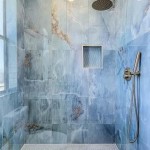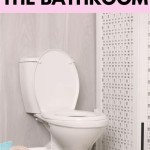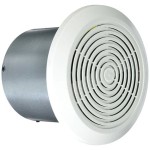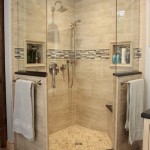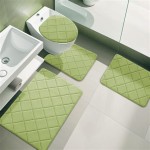Why Do I Go To The Bathroom Right After Eating?
The urge to defecate shortly after eating is a common experience. While not always a cause for concern, understanding the underlying physiological processes can help individuals determine if their postprandial bowel movements are normal or indicative of a potential digestive issue.
The Gastrocolic Reflex
One of the primary drivers of this phenomenon is the gastrocolic reflex. This reflex is an involuntary physiological response that initiates contractions in the colon triggered by the entry of food into the stomach. The reflex helps to make room for incoming food by moving existing waste through the digestive tract. The intensity of the gastrocolic reflex varies from person to person. Some individuals experience a strong urge to defecate shortly after eating, while others notice a less pronounced or delayed response.
Hormonal Influences
Several hormones play a role in digestion and can influence bowel movements post-meal. Gastrin and cholecystokinin (CCK) are released when food enters the stomach and small intestine, respectively. These hormones stimulate digestive processes, including increased intestinal motility, which can contribute to the urge to defecate. Motilin, another key hormone, regulates the migrating motor complex, a series of contractions that sweep through the digestive tract between meals. Eating can trigger the release of motilin, further enhancing intestinal motility and promoting bowel movements.
The Composition of the Meal
The specific contents of a meal also play a significant role in postprandial bowel activity. Foods high in fiber, particularly insoluble fiber, add bulk to the stool and stimulate bowel movements. Fatty foods, such as those rich in saturated or unsaturated fats, trigger the release of CCK, further amplifying the gastrocolic reflex. Coffee, both caffeinated and decaffeinated, can also stimulate bowel activity in some individuals. The combination of these dietary factors can contribute to a heightened urge to defecate after eating.
Individual Variations and Sensitivity
The gastrocolic reflex and hormonal responses vary significantly among individuals. Factors such as age, genetics, and underlying health conditions can all influence an individual's response to food intake. Some individuals may be more sensitive to the effects of certain foods or hormones, leading to a stronger or more immediate urge to defecate after eating. Furthermore, the composition of gut microbiota, the community of microorganisms residing in the digestive tract, can also impact bowel motility and frequency.
Potential Underlying Medical Conditions
While the urge to defecate after eating is often a normal physiological response, in some cases, it can be a symptom of an underlying medical condition. Irritable bowel syndrome (IBS), inflammatory bowel disease (IBD), and food intolerances can all cause altered bowel habits, including increased frequency and urgency. Conditions affecting the nerves or muscles of the digestive tract can also disrupt normal bowel function. If postprandial bowel movements are accompanied by other symptoms such as abdominal pain, cramping, bloating, blood in the stool, or significant changes in bowel habits, it is essential to consult a healthcare professional for further evaluation.
Distinguishing Normal from Abnormal
Differentiating between a normal gastrocolic response and a potential medical issue requires careful consideration of several factors. The frequency, consistency, and volume of stool, the presence of accompanying symptoms, and any recent changes in bowel habits are all relevant factors. Infrequent or occasional urges to defecate after meals are generally considered normal. However, frequent, urgent, and painful bowel movements, especially if accompanied by changes in stool consistency or the presence of blood, warrant medical attention. Keeping a food diary and noting any associated symptoms can be helpful when discussing these concerns with a healthcare provider.
Lifestyle Modifications and Management
Managing postprandial bowel movements often involves simple lifestyle modifications. Regular meal times and consistent portion sizes can help regulate the gastrocolic reflex. Consuming a diet rich in fiber, particularly soluble fiber, can improve stool consistency and regularity. Staying hydrated by drinking plenty of water throughout the day is also essential for healthy bowel function. Stress management techniques, such as regular exercise and relaxation practices, can also influence bowel activity. For individuals experiencing significant discomfort or disruption to their daily lives, a healthcare provider may recommend dietary changes, over-the-counter medications, or further diagnostic testing.
Importance of Medical Consultation
While understanding the physiological mechanisms behind postprandial defecation can offer reassurance, self-diagnosing is discouraged. Seeking professional medical advice is crucial when experiencing persistent or concerning changes in bowel habits. A healthcare professional can accurately assess individual circumstances, differentiate between normal and abnormal bowel activity, and recommend appropriate management strategies or further investigations if needed. Open communication with a healthcare provider is vital for ensuring proper diagnosis and addressing any underlying medical issues.
Why Do I Need To Go The Restroom Immediately After Eating Quora

Using The Bathroom Right After You Eat Is It Normal Mycrohnsandcolitisteam
:max_bytes(150000):strip_icc()/diarrhea-after-eating-1944811-01-5bc5fa3446e0fb0026c414bf.png?strip=all)
Diarrhea After Eating Causes And Treatments

What Causes You To Poop Right After Eating Smiles

Gastrocolic Reflex Why Do I Have To Poop Right After Eat Goodrx

Gastrocolic Reflex Going To The Bathroom After Eating With Ibd

Pooping Right After Eating What Are The Causes

10 Healthy Things To Remember Before And After You Eat Dinner

Pooping After Eating Is Food Going Right Through Me

Why Do I Poo In The Morning A Gut Expert Explains
See Also
